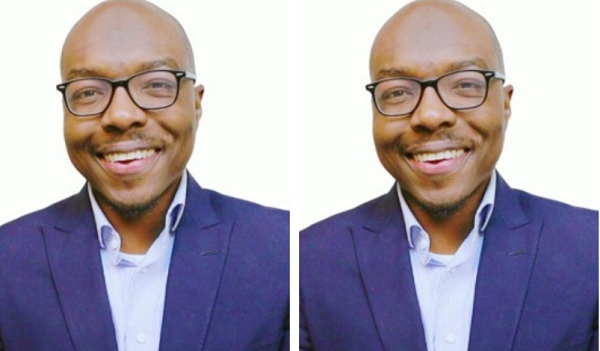Nigerian man reveals how he changed his name on his resume before he got a job in the U.S

Mukhtar Kadiri’s first name means “chosen one” in Arabic, and it carries a special and mysterious significance for him. His father named him Mukhtar after his friend from high school. But, inwardly, Mukhtar knew that his birth name could hinder his job prospects.
Initially, he struggled with his name but grew to appreciate it over time. In 2007, he decided to add an English-sounding name to his resume to improve his job prospects, hoping it would help him fit in and avoid being seen as an outsider.
He is uncertain if this change directly led to his employment but felt it necessary to assimilate and not be seen as “another”.
Mukhtar, born in Edo State, Nigeria, decided to adopt an English-sounding alias to ease potential barriers with employers.
Growing up in a predominantly Christian area despite his Muslim family’s background, his Arabic name often signaled his religious differences. He recounted how his name made him feel isolated and was teased by his peers.
He moved to the U.S. in 2002 to study petroleum engineering at Texas Tech University. Mukhtar felt like a minority during his college years at Texas Tech University, he told Business Insider. He recalled that in Nigeria, people are often classified by tribe and religion, but, he later learned that in the U.S., stereotypes are race-based.
Despite being perceived as African American due to his appearance, he struggled to fit into any specific category. Near the end of college, he diligently prepared for a career in petroleum engineering, attending workshops, refining his resume, and actively applying for jobs, and attending interviews.
Mukhtar observed that while many of his American classmates were receiving numerous job offers, he faced challenges partly due to his status as an international student requiring H-1B visa sponsorship from an employer.
He said he graduated in 2007 without a job and this significantly increased his anxiety. During college, he recalled participating in on-campus interviews arranged by his department, but post-graduation, he found it increasingly difficult to secure interviews.
Research indicates that resumes with English-sounding names receive more job callbacks. Mukhtar noticed that his Nigerian friends with English names navigated social and professional spaces smoothly, appearing less strange and more familiar.
To enhance his job prospects, he added “Mark” in quotation marks next to his first name on his resume. He chose Mark because it shared some letters with Mukhtar, hoping this alias would be easier for interviewers to pronounce and reduce barriers.
After adding “Mark” to his resume, Mukhtar quickly secured an interview with an oil and gas service company. The interviewer referred to him as Mark, and he eventually received a job offer in petroleum engineering.
While it’s uncertain if the alias directly influenced the outcome, Mukhtar found the timing noteworthy. Mukhtar said he began his job in December 2007, working on software development for oil and gas companies.
Although he didn’t legally change his name, he introduced himself as Mark, and his colleagues and boss used this alias. However, he felt uncomfortable with the name, feeling it denied his roots and authenticity. Though there was no external pressure to change his name, he felt compelled to do so for job security.
Over time, he transitioned back to using Mukhtar, after he was encouraged by a Nigerian colleague who mentored him and used his real name. After eight months, Mukhtar was relocated to Oman, where he spent five years before moving to the UAE. This move allowed him a fresh start.
In the Middle East, where Arabic is widely spoken, he introduced himself as Mukhtar. His name was often recognized and admired, a stark contrast to the mispronunciations he faced in the U.S. and Nigeria.
This acceptance made him feel like he belonged and no longer had to apologize for his identity.
Source: bbc.com





